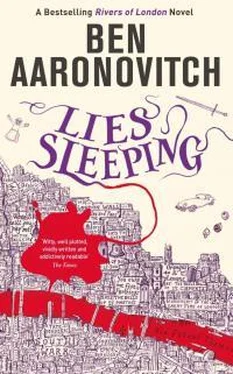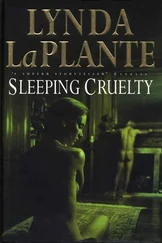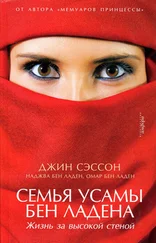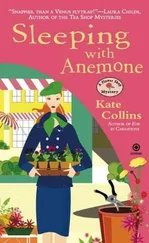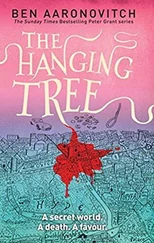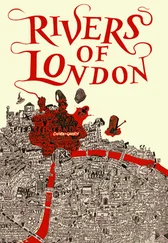Quite impressive, really, and not lost on Nightingale.
He’d have followed her out, but he had to run downstairs and make sure Richard Williams didn’t bleed to death.
‘This one seems far more capable than the individual you encountered in Soho,’ he’d said.
But who was ‘this one’?
When we’d done the initial Integrated Intelligence Platform check on the Williams household her name had been listed as Alice McGovern of Leith, Scotland. When the Belgravia follow-up team finally tracked down the real Alice, she turned out to be a heroin addict currently living in Glasgow who’d sold her identity to a group of entrepreneurial information brokers. They liked using addicts because they generally tried to stay off the grid and, contrary to what people think, can live a long time without coming to the attention of the authorities.
The loft conversion had two bedrooms and a bathroom. The rear bedroom had been turned into a playroom for the children. A half-demolished canvas and bamboo Wendy house sat in the centre where light from the window pooled. There were more shelves stuffed with toys and puzzles and picture books. And a cushion nest in the corner for naps, and a pair of pink fairy costumes hanging from a hook on the back of the door.
There was a smell in the front bedroom. It reminded me of the period when I was sharing a house with half a dozen young PCs, and from student digs I’ve visited since. A bit of old sweat and leftovers and overstuffed swing-top bins. The Pale Nanny’s queen-sized bed was unmade and, when I had a sniff, the sheets hadn’t been changed for a couple of weeks. Whoever cleaned the rest of the house hadn’t come into this room.
It too had been painted the same white-with-a-hint-of-bland as downstairs and furnished during a sale at Ikea. About half the Pale Nanny’s clothes were draped over a straight-backed chair and matching writing desk. The rest were tumbled into drawers with no apparent organisation. The Pale Nanny had favoured tracksuit bottoms, T-shirts and hoodies in pink, sky blue and navy, and her underwear was sensible and cheap.
After the initial engagement with Nightingale she could have gone out the back door but instead she ran up the stairs. Why? Was there something in her room she wanted, something important? Something sentimental?
I checked the drawers again, but there was a stunning absence of cryptic photographs hidden inside.
I sat down on the bed and looked around the room from there.
Nothing sprang out at me, but given the way my day had gone that was probably a good thing.
‘Maybe she went back for her phone,’ said Bev. ‘I’ll bet you didn’t think of that.’
‘We didn’t find a phone,’ I said, although it was true I hadn’t thought of that.
We were in Bev’s outsized kitchen cooking pasta and random things we’d found in the fridge. I was frying onions and garlic in the bottom of a saucepan while Bev defrosted the mince by dragging it out of the freezer and glaring at it until it melted. She’s done this before and it takes under a minute. My current working hypothesis is that she’s scaring the water molecules into a state of excitation. I’m dying to wire up the mince and get some precise measurements, but Bev won’t let me. She says it’s because a goddess should retain a few mysteries, but I think she’s saving it for a future PhD project. I did try to further the cause of science once by grabbing her around the waist and kissing her neck in the hope it would cause the mince to burst into flames. Sadly, this did not happen – although she did smell nice and, anyway, in science a negative result is almost as good as a positive. And however arduous kissing Beverley becomes, I am willing to persevere in the name of progress.
There was a shriek from the back garden, where Abigail and Nicky were doing something youthful and thankfully unspecified down on the riverbank. Beverley had taken both of them down to Runnymede earlier to hunt insects as part of our ongoing project to keep Abigail out of trouble during the summer holidays.
Once the mince was steaming gently Beverley broke it up with a wooden spatula and dropped it into the saucepan, where I stirred it as it browned.
‘I wish we knew what the Pale Nanny was,’ I said.
‘You can’t call her the Pale Nanny,’ said Beverley, who was hunting through her cupboard for anything vaguely tomato-ish. ‘The Pale Lady is a very specific person upstream and using her name casually like that is a mistake.’
Mistake has a specific meaning when Beverley says it like that. It means likely to provoke outrage and adverse consequences, and I don’t mean on social media either.
‘Ash called the one in Soho a “Pale Lady”,’ I said. Mind you, the woman in question had just thrust a metre of iron railing through his abdomen so he wasn’t what you’d call a reliable witness.
Beverley found a tin of peeled plum tomatoes hidden behind a couple of jumbo tins of boiled chickpeas that I doubted anyone in this house was ever going to be hungry enough to cook.
‘Wasn’t she some kind of chimera?’ she asked, as she rattled through a drawer for the clean tin opener. ‘Isn’t that what Abdul called her?’
Dr Abdul Haqq Walid was the Folly’s very own part time cryptopathologist and weird specimen collector. We’d recently ponied up to get him a qualified assistant and she, one Dr Jennifer Vaughan, had spent the last year reclassifying everything.
‘Jennifer says “chimera” is not necessarily a helpful term,’ I said. ‘I think she’s right. I think the Soho Lady and the Pale Nanny were High Fae.’
Beverley snorted. It didn’t help that her and everybody else in the demi-monde couldn’t agree on terminology, either.
The mince was browning nicely so I turned down the heat to stop it from burning and Bev tipped in the tomatoes and went looking for some peppers.
The good gentlemen of the Society of the Wise had plenty of theories and systems of classification for the people of the demi-monde, most of them involving a mixture of Latin, Greek and misinterpreted Darwinism. To them, fae basically meant anyone who was vaguely magical who hadn’t gone to the right school, with the High Fae being the creatures referenced in medieval literature who dwelt in their own castles with a proper feudal set-up and an inexplicable need to marry virtuous Christian knights.
I’d been pretty certain it was all folklore, until one hot summer when I nearly got myself whisked off to fairyland – which looked suspiciously like a parallel dimension, or whatever the cosmologists are calling them these days. Bev rescued me, by the way, which is why I never argue about emptying the dishwasher.
The best general description I ever heard came from Zachary Palmer, self-styled half-fairy, who once told me that there were three basic types of people. Those who were born magical, which included most of the fae; those who acquired magic through their own agency – like me, Nightingale, all the other practitioners, and presumably aspiring legendary swordswomen like Guleed . . .
And the final group were those who had been changed by magic, often against their will. I had documented cases of children who’d brushed up against fairyland and come back with different coloured eyes and magical abilities. Then there were those who had been altered by evil practitioners into monstrous chimera, real cat-girls and tiger-boys. Like I said, I wasn’t joking about the crimes against humanity.
And there was at least one person whose mind and body had been possessed by a revenant spirit, or possibly the ghost of a god, and that had left her ‘changed’. But I’ve got to believe that biology isn’t destiny, and we’re more than just the puppets of our endocrine system – or else what’s the fucking point?
Читать дальше
